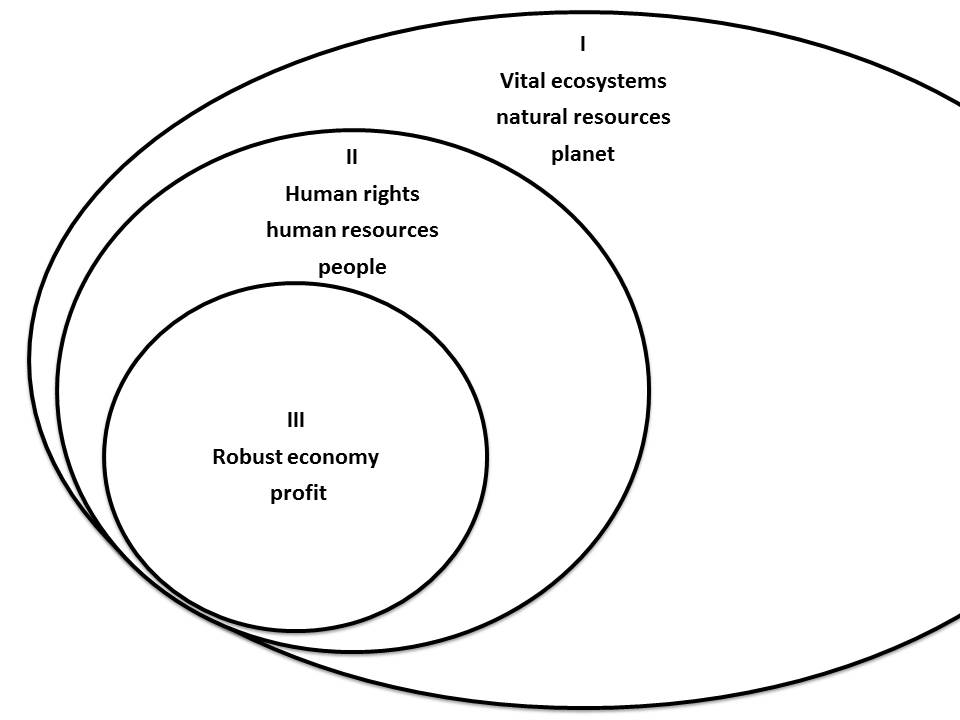Society cannot be constructed on short-term economic requirements because overcoming of the planetary boundaries means, in the end, destruction of economy. Therefore there is a hierarchy between ecological, social and economic elements of culture which form a framework for sustainable human activity.
Strong sustainability approach (ecosocial approach) is based on the fact that staying within planetary boundaries is the most important principle for human activity. According to systems thinking the ecosystems, societies and markets are in hierarchical relationship to each other as follows:
1. First of all we have to secure the conditions of diverse life on planet Earth. The viability of ecosystems and the sustainable use of natural resources determine success and possibilities of society and economy.
2. Implementation of human rights (justice, equality, democracy, cultural diversity) determines success of economy.
3. Markets is an instrument to reach well-being, not an end in itself.
Strong sustainability approach does not deny the possibility of the economic growth but it determines two conditions for the growth: taking care of the ecological boundaries and the profound respect for human rights. If natural resources, ecosystem services, and human beings are instruments for the more important market growth, our debt for future generations will grow, and ethics will be undermined.
—-

